Is lustration necessary and what can it be during Russian-Ukrainian war: opinions of human rights defenders
On September 14, Human Rights Centre ZMINA held an expert discussion on whether lustration should be carried out after the liberation of the occupied territories. According to human rights defenders, the state should already consider and implement mechanisms for holding those who worked for the occupying power to account.
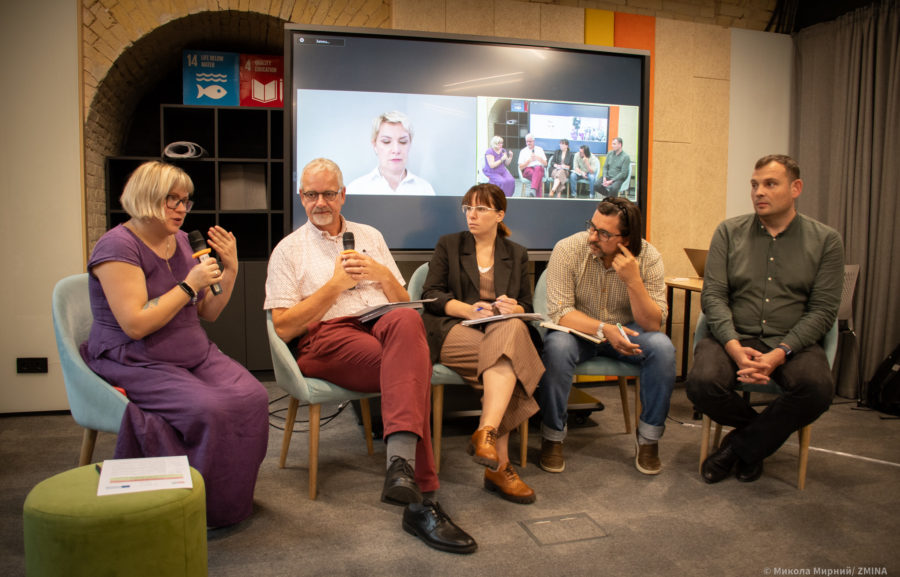
As ZMINA advocacy director and event moderator Alena Lunova noted, the mechanism of lustration is not new for Ukraine: the Law “On Cleansing of Authorities” has existed since 2014. It limits the right to hold public office for those who contributed to the usurpation of power during Yanukovych’s time. However, this law was criticized by the Venice Commission, and the ECHR indicated that this law could be applied to a very large number of people without assessing their role.
In addition, according to Lunova, there is little discussion about the introduction of lustration in the context of overcoming the consequences of the war and preventing the recurrence of armed conflict in the future. Therefore, such discussions are very necessary at the moment.
“Lustration has potential because criminal prosecution cannot be the only possible response of the state to the facts of collaboration of citizens with the occupation authorities, especially when the territory has been under occupation for a long time. Therefore, it is possible and necessary to talk about the introduction of lustration mechanisms taking into account Ukrainian and international experience already now,” Lunova said.
IFES (TBC) expert Oleksandr Kliuzhev noted that the country faced the difficult task of finding a balance between society’s demand for justice, the requirements of the Ukrainian Constitution, international standards, and the need to avoid new painful divisions in society, as well as not to create a basis for Russia to continue using divisive technologies.
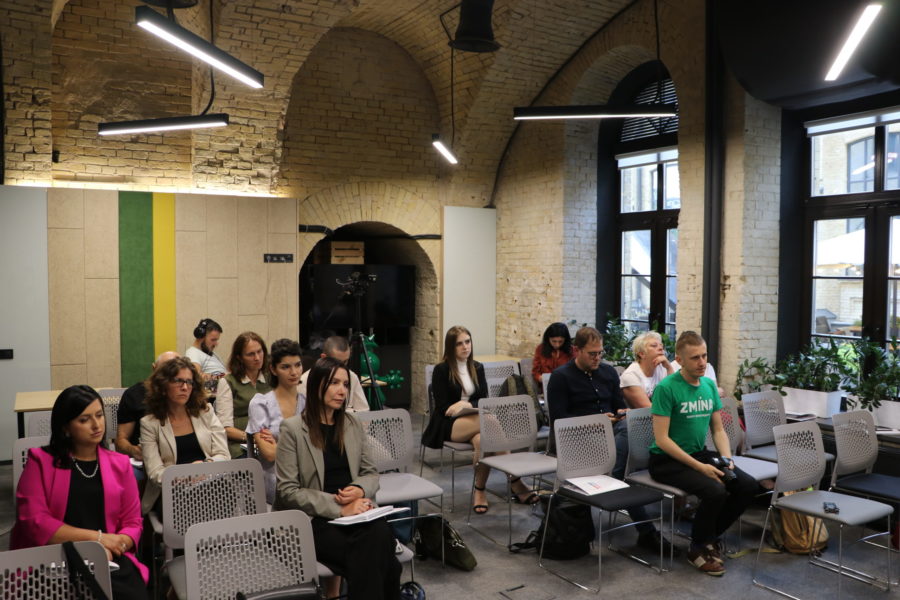
“Therefore, the price of a mistake in this matter is high, and it is very important that we started this dialogue, in particular at this site,” Kliuzhev said. In his opinion, lustration should not be applied to elected positions, so as not to limit Ukrainian voters’ ability to vote. Instead, the state should establish, within the framework of a criminal investigation and criminal proceedings, the individual guilt for collaboration with Russia for those running for office.
The expert believes that to protect Ukrainian democracy, it is worth looking for options that would solve the problem but do not contradict international standards, the Constitution of Ukraine, democratic and competitive elections. In particular, one of the options for further discussion could be the reform of party legislation regarding the ban on membership in political parties for those who have been involved in banned parties.
“That is, it is possible to restrict these persons not from running in elections, but from having membership in political parties. Such a model may include banning non-partisan candidates from running as part of political parties. And in this way, we are creating a mechanism to protect democracy from those possible negative consequences,” Kliuzhev believes. Considering the social importance of the problem, the expert emphasized the need for an inclusive discussion of all possible solutions.
IFES senior international adviser Harald Jepsen agreed with Kliuzhev and said that their organization proposed to oblige political parties that nominate candidates for future elections to provide full information about the past affiliation of these candidates to banned parties in registration documents and applications. He added that any restrictions on the right of citizens to vote would be considered a deviation from their international obligations to the European Convention on Human Rights and international pacts related to elections.
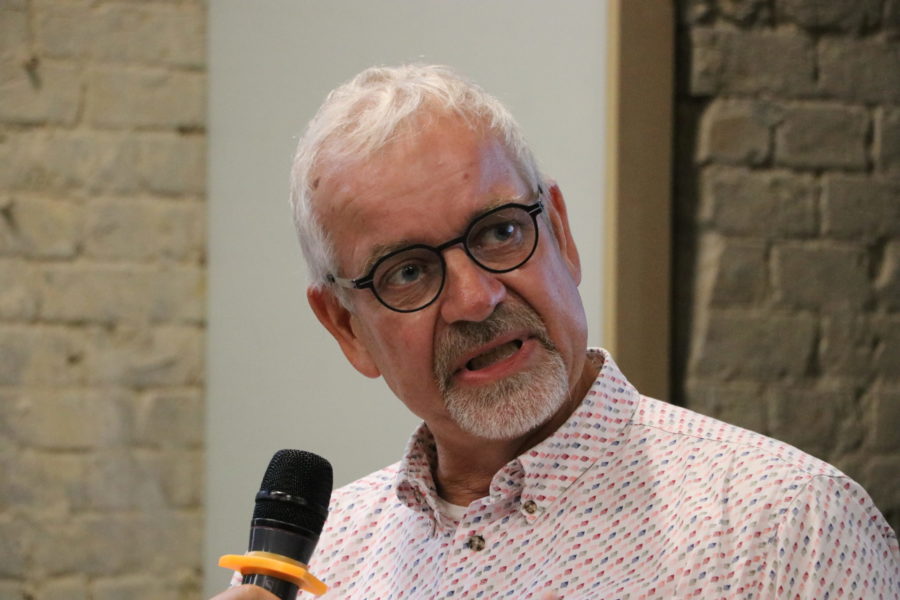 Harald Jepsen
Harald Jepsen“In this case, the Council of Europe and the UN will closely monitor the situation in Ukraine and will periodically request information from the Ukrainian government about the state of affairs in this area,” Jepsen said.
Tetiana Kozachenko, lawyer, head of the Public Lustration Committee, director of the lustration department at the Ministry of Justice (2014–2016), participated in the development and implementation of legislation on the cleansing of Ukrainian authorities. During the discussion, she emphasized that lustration was not just the cleansing of power because the state already had the tools for this. Lustration is only a political-historical declaration that is introduced when the common law is not able to protect the state.
As she noted, criminal cases over collaborationism are a matter of years, but the state does not have that much time for punishment as there is an immediate need to protect sovereignty. Kozachenko suggests revising the criteria for selecting people for public service, raising the threshold for entry into public positions, thus making access to these positions more difficult.
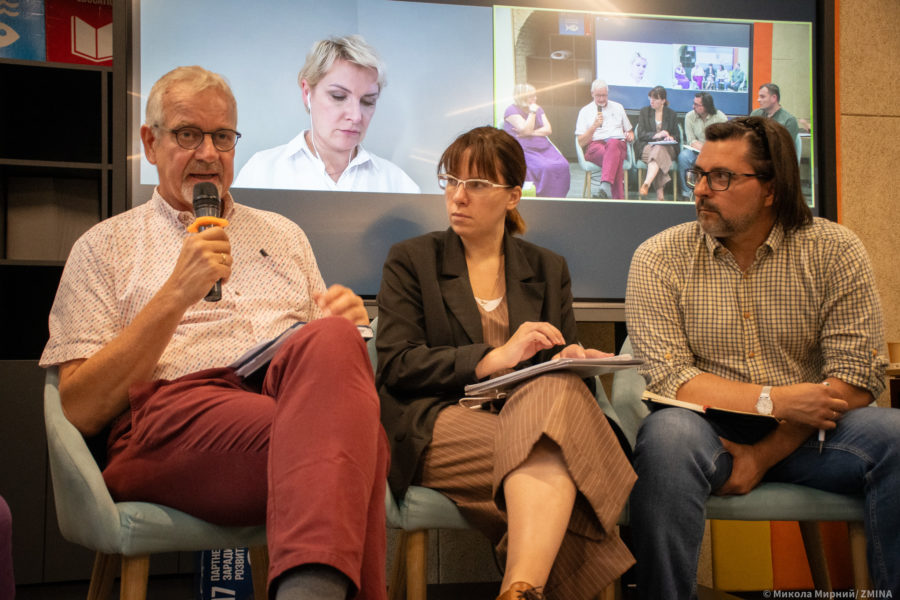
“It is very important to determine which officials we want to have and what the criteria will be for selecting and holding positions in the executive and electoral bodies. And only after that, we should think about how to make such people come to power,” Kozachenko comments.
Olha Kuryshko, the Deputy Permanent Representative of the President of Ukraine in Crimea, noted that the state should discuss all prosecution processes with society and explain that certain people will be limited in their right to hold positions:
“Restrictions on holding positions could be an answer to society’s demand for justice. But the state should reconsider the approach to defining what collaborative activity is in the conditions of long-term occupation. In addition, the actions of an individual must be evaluated individually. Therefore, the restriction on holding office can be a solution, in particular, for de-occupied territories that have been under occupation for a long time. But this involves a very large amount of work for us.”
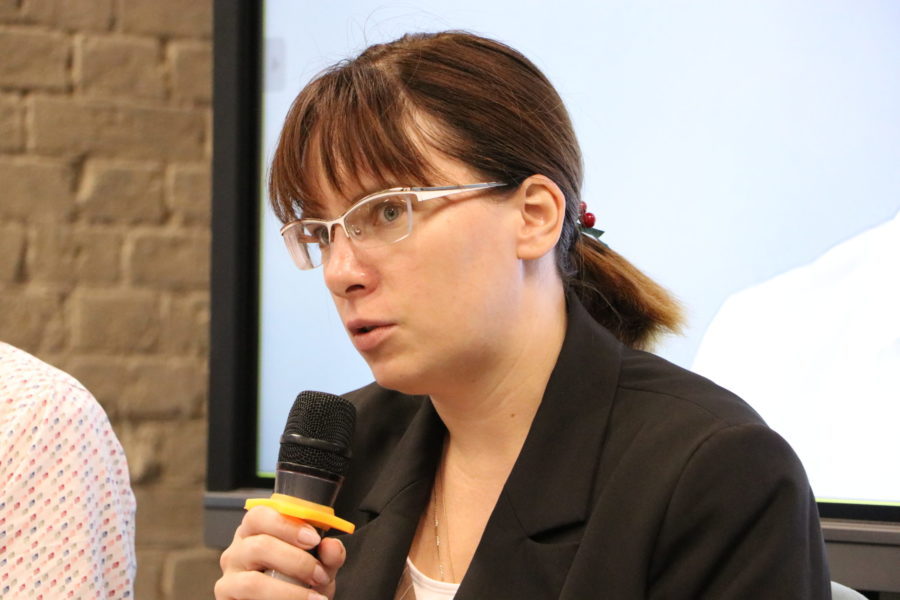 Olha Kuryshko
Olha KuryshkoAccording to Andriy Yakovliev, lawyer, managing partner at Umbrella law firm, expert at the Regional Center for Human Rights, if the voting rights of citizens are to be restricted, then it is necessary to determine why and with what approaches. In addition, in his opinion, it is worth taking into account the duration of the influence of the occupation and Russian propaganda on Ukrainian citizens and realizing that Ukrainians may not understand the all-Ukrainian political context during the nine years of occupation.
He also believes that if lustration mechanisms are to be applied, in particular in the educational sphere, then it is worth introducing such a form as re-hiring.
The material was prepared with the support of the European Union and the International Renaissance Foundation within the framework of the joint initiative “European Renaissance of Ukraine”. The material represents the position of the authors and does not necessarily reflect the position of the European Union or the International Renaissance Foundation.
If you have found a spelling error, please, notify us by selecting that text and pressing Ctrl+Enter.















